Warning: This post contains spoilers for Game of Thrones season 8.
Prophecies have always played a major role in the world of Game of Thrones. But with just three episodes to go until the final season comes to a close, there are still a number of loose ends to tie up about the show’s most significant foretellings.
“Prophecies are dangerous things,” Melisandre told Daenerys in season 7, a truth that the Red Priestess came to understand all too well as she sought out the Prince That Was Promised over the course of the series. In fact, it wasn’t until the third episode of season 8, “The Long Night,” that one of Melisandre’s visions finally played out how she originally predicted it would.
With that being said, let’s take an in-depth look at every Game of Thrones prophecy that could still play a role in season 8.
Prophecy name: The Prince That Was Promised
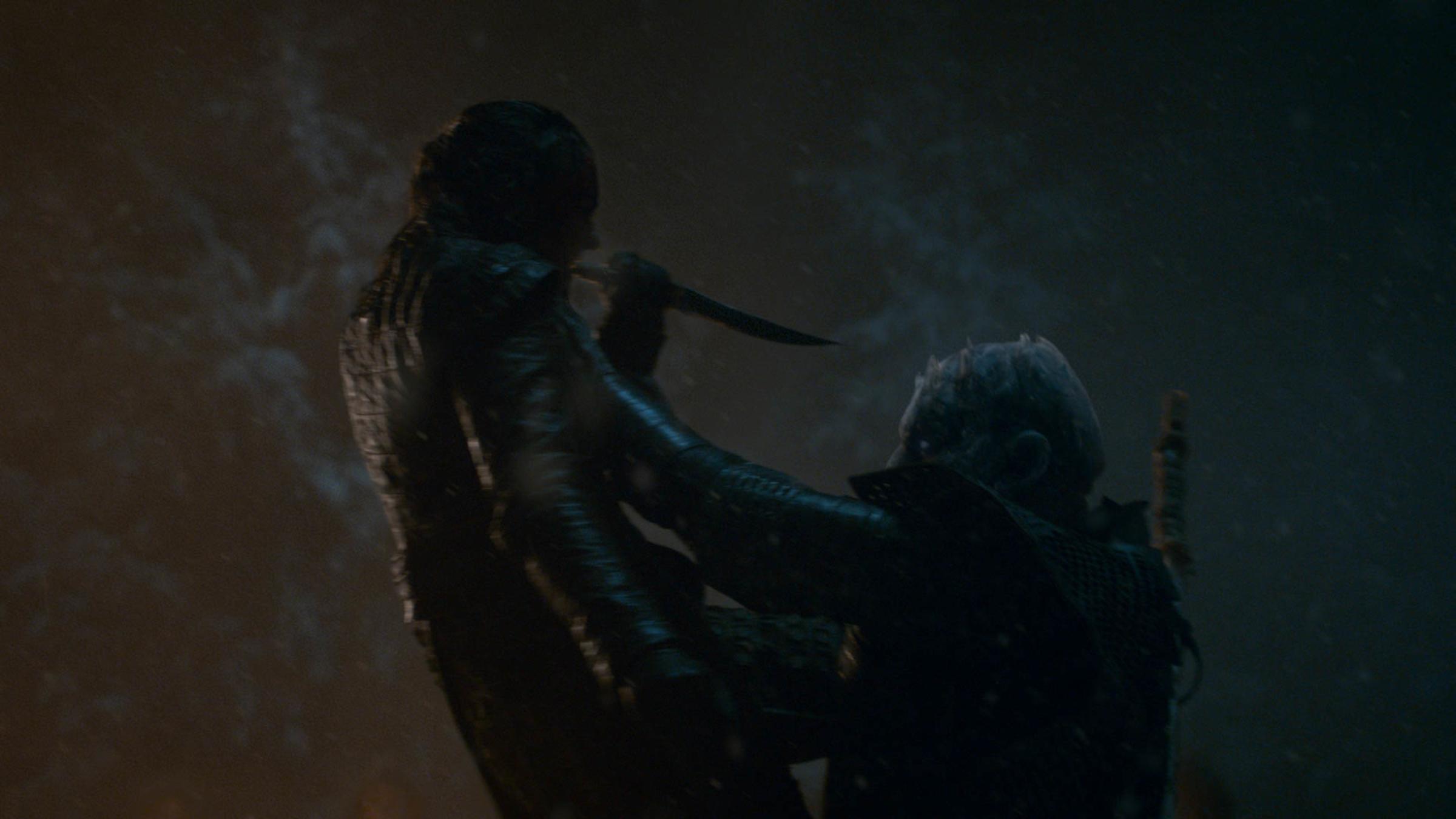
Leading up to Game of Thrones‘ eighth season, Jon Snow and Daenerys Targaryen had both been declared the Prince Who Was Promised — a prophesied savior in the faith of R’hllor who is the reincarnation of legendary hero Azor Ahai — by Red Priestesses of the Lord of Light. And for a long time, there was a strong argument to be made in support of either character, especially considering the word “prince” is considered gender-neutral in High Valyrian.
“The Long Night is coming. Only the Prince Who Was Promised can bring the dawn,” Melisandre told Dany in season 7 “Prophecies are dangerous things. I believe you have a role to play, as does another — the King in the North, Jon Snow.”
But in the aptly titled third episode of season 8, “The Long Night,” it was revealed that Arya Stark was actually the one who was fated to kill the Night King. This twist came as a surprise to some fans, but in retrospect, Game of Thrones has been foreshadowing Arya’s heroic act for years.
When Arya was training with master swordsman Syrio Forel in season 1, he taught her a motto that stuck with her throughout the series: “What do we say to the god of death? Not today.” And when she first met Melisandre in season 3, it was clear that Mel recognized her as someone significant. “I see a darkness in you,” Melisandre told her. “And in that darkness, eyes staring back at me: brown eyes, blue eyes, green eyes. Eyes you’ll shut forever. We will meet again.”
Judging by Melisandre’s insistence that Stannis Baratheon, and later, a combination of Jon and Daenerys was the Prince That Was Promised, it seems that she didn’t know exactly how Arya would fit into the Great War. But when the pair locked eyes at Winterfell following Melisandre’s return, it was clear that all of the pieces were falling into place for her.
After Beric Dondarrion sacrificed himself for Arya during the battle, Arya turned to find Melisandre waiting to speak to her. “The Lord brought him back for a purpose,” Melisandre told her, suggesting that Beric was resurrected on six separate occasions solely to save Arya. “Now that purpose has been served.”
The two then reminisced about their first conversation, with Melisandre indicating to Arya that she was fated to kill the Night King by putting an emphasis on the blue eyes that she had told her she would shut. Mel then echoed Syrio Forel’s question of “What do we say to the god of death,” prompting Arya to respond “Not today” and sprint off. Arya, of course, went on to kill the Night King by stabbing him with the Valyrian steel dagger that has been an integral part of the Stark family’s storyline since Game of Thrones‘ second episode.
However, Arya being the Prince That Was Promised isn’t necessarily consistent with the details of the prophecy. Basically, other than the fact that she killed the Night King, Arya doesn’t fit any of the criteria for being the chosen one. First and foremost, according to the prophecy, the Prince was destined to “lead the people against a darkness” with a flaming sword called Lightbringer.
“There will come a day after a long summer when the stars bleed and the cold breath of darkness falls heavy on the world,” it reads. “In this dread hour a warrior shall draw from the fire a burning sword. And that sword shall be Lightbringer, the Red Sword of Heroes, and he who clasps it shall be Azor Ahai come again, and the darkness shall flee before him.”
Arya killed the Night King with a dagger, not a sword, and definitely not a flaming sword. She also wasn’t born under a bleeding star “amidst salt and smoke,” and hasn’t woken dragons from stone as Melisandre says will be true of the Prince in George R. R. Martin’s A Song of Ice and Fire book series.
So was the whole Prince That Was Promised thing just a misdirection? Maybe. There are numerous hints throughout the books that prophecies can be unreliable and probably shouldn’t be taken at face value. Not to mention that Martin has never met a fantasy trope he didn’t enjoy playing with.
But it’s also possible that there’s still more we don’t know about the truth of the prophecy.
Prophecy name: Valonqar
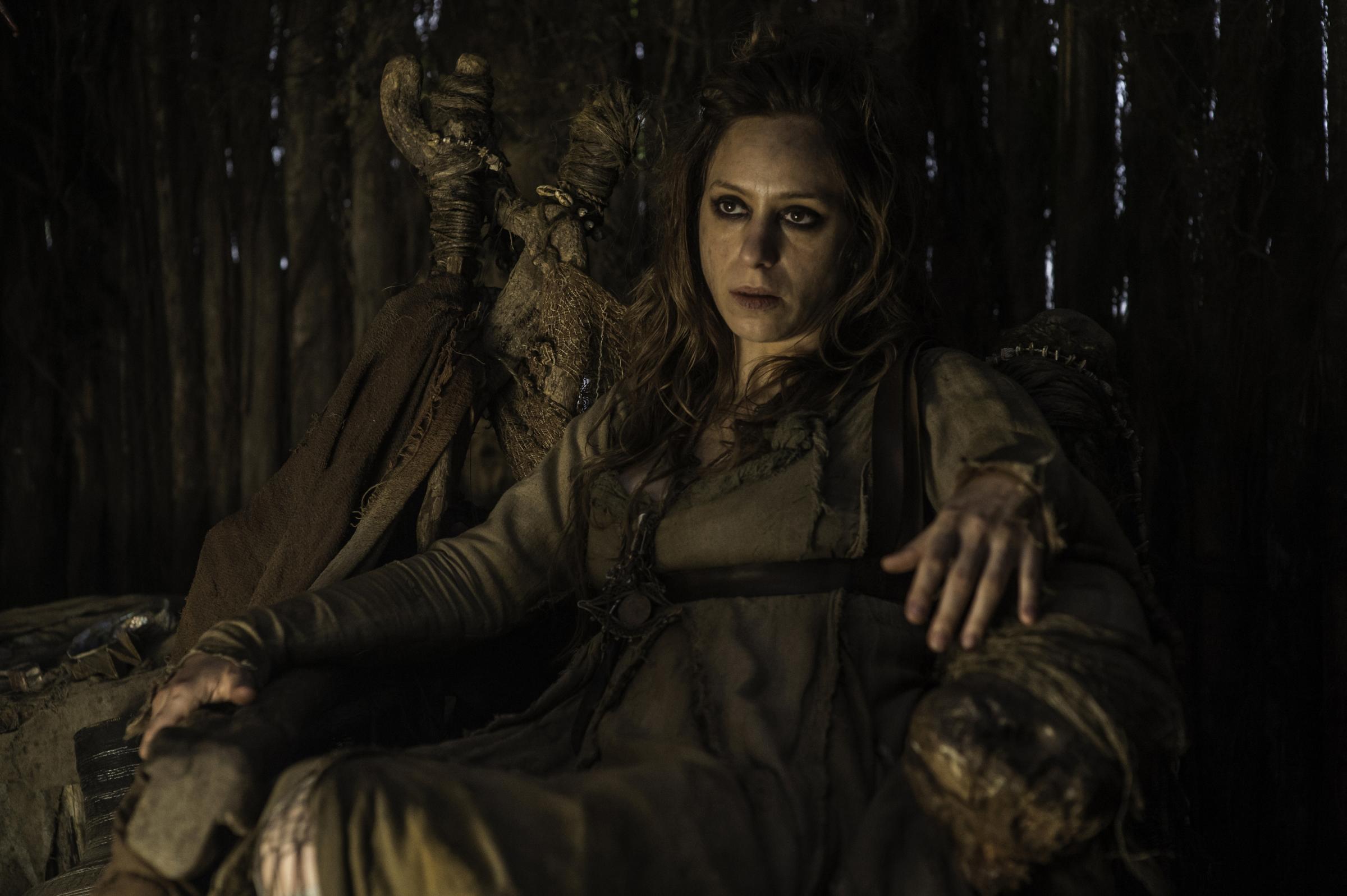
In a flashback sequence in the season 5 premiere, we saw a young Cersei having her future told by a witch named Maggy the Frog. “You will never wed the prince, you will wed the king,” Maggy told her. “You’ll be queen, for a time. Then comes another — younger, more beautiful — to cast you down and take all you hold dear…The king will have 20 children, and you will have three…Gold will be their crowns, gold their shrouds.”
Whether or not it’s because the prophecy has become self-fulfilling, almost all of these predictions have already come true. Cersei was promised to Prince Rhaegar Targaryen as a young girl, but ended up marrying King Robert Baratheon following Robert’s Rebellion. He went on to father many illegitimate children while Joffrey, Myrcella and Tommen — who are all dead — were a product of Cersei’s incestuous relationship with her twin brother Jaime. As for the younger, more beautiful queen, the name Daenerys Targaryen comes to mind.
However, in George R .R. Martin’s A Song of Ice and Fire books, there is a final line to the prophecy that the show did not include: “And when your tears have drowned you, the valonqar shall wrap his hands about your pale white throat and choke the life from you.”
Since “valonqar” means “little brother” in High Valyrian, some fans believe that this line was purposefully cut from the show to avoid giving too much away about what was to come. In the books, Cersei long assumes that Maggy was talking about Tyrion and even has a vision of him murdering her in A Feast For Crows — the fourth novel in Martin’s series — after he kills Tywin.
He killed Father as he killed Mother, as he killed Joff. The dwarf would come for her as well, the queen knew, just as the old woman had promised her in the dimness of that tent. I laughed in her face, but she had powers. I saw my future in a drop of blood. My doom. Her legs were weak as water…It is blood I need, not water. Tyrion’s blood, the blood of the valonqar. The torches spun around her. Cersei closed her eyes, and saw the dwarf grinning at her. No, she thought, no, I was almost rid of you. But his fingers had closed around her neck, and she could feel them beginning to tighten.
However, as the second-born twin, Jaime is technically also her little brother.
The pregnancy storyline introduced in season 7 has also added an extra level of intrigue to the prophecy. Prophecies in Game of Thrones are rarely literal — for example, the baby’s father, Jaime, could technically be construed as Cersei’s killer if she dies in childbirth. That is, if she’s actually pregnant.
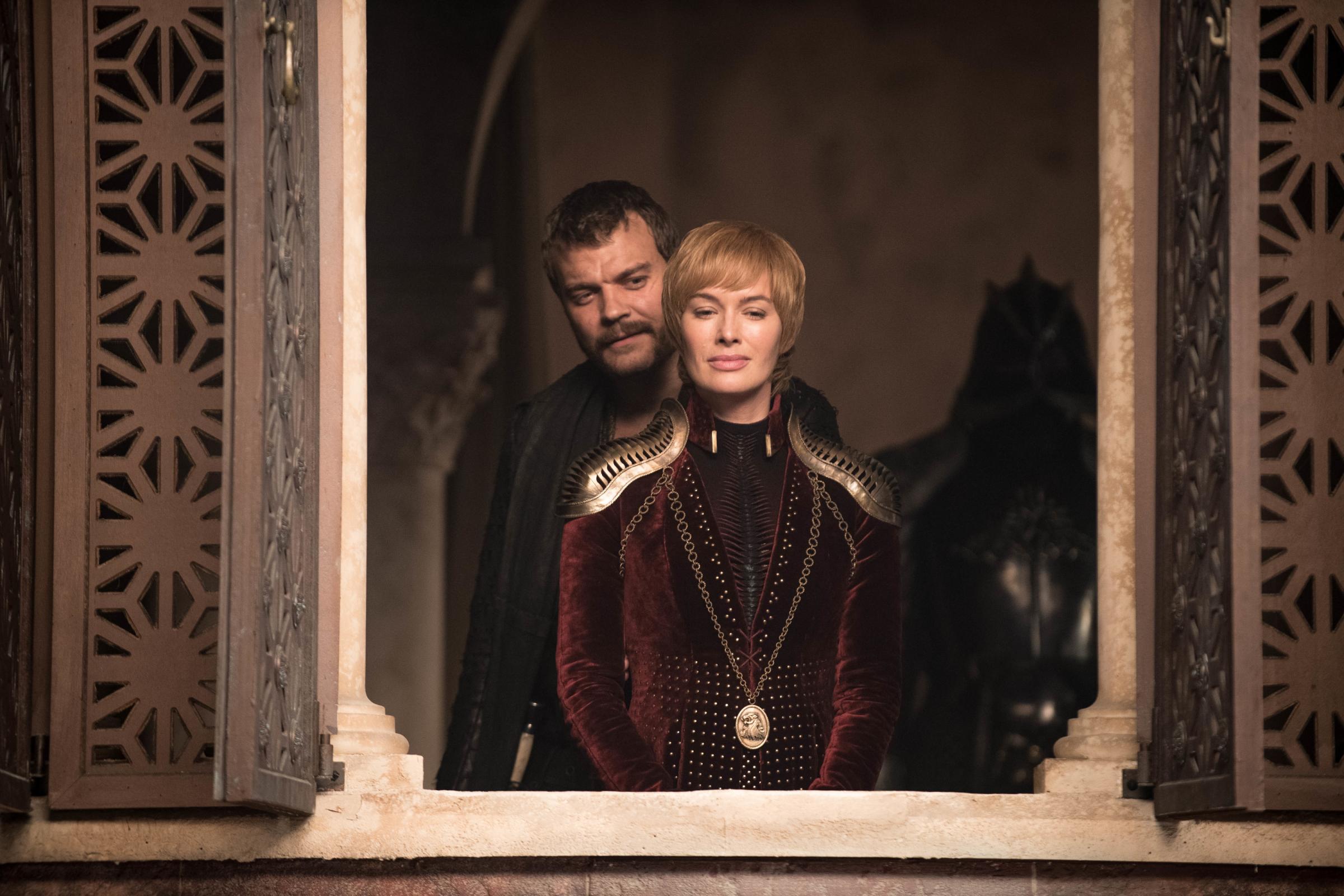
In the season 8 premiere, Cersei consummated her relationship with Euron after he basically threatened to cut off the support of the Iron Fleet if she didn’t. The scene ended with Euron telling Cersei, “I’m going to put a prince in your belly,” while she downed a glass of wine.
Euron’s statement to Cersei would be impossible if she’s already pregnant. But when Tyrion and Cersei were reunited in the season 7 finale, it seemed like part of the reason he was able to guess that she was expecting was that she wouldn’t drink the wine he poured her. Does that mean that her drinking in the season 8 premiere is a sign that she’s no longer — or never actually was — pregnant?
With Jaime gone, this could open the door to possibilities like a different “little brother” being the one who kills Cersei. Some fans now speculate that her end will ultimately come at the hands of Euron, who is the younger brother of Balon Greyjoy and clearly doesn’t have the purest of intentions.
Prophecy name: Three Heads of the Dragon
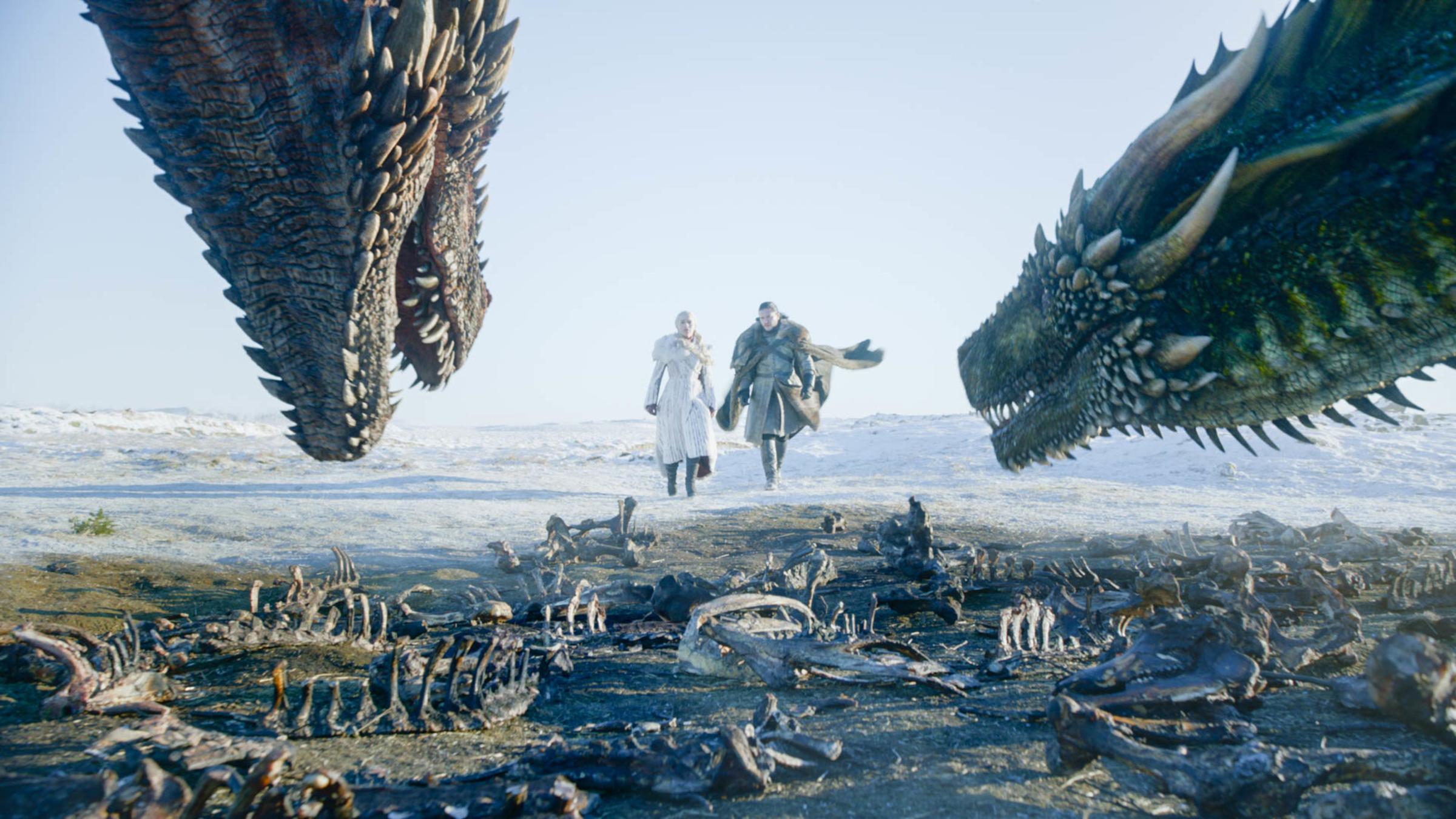
The three heads of the dragon prophecy comes from a book scene in which Daenerys has a vision of her brother Rhaegar in the House of the Undying in Qarth. Show watchers saw this sequence in season 2, but that particular scene, along with a few others, was not included. During the vision, Daenerys sees Rhaegar naming his newborn son Aegon — his second child with Elia Martell, not Jon, whose real name is also Aegon — as a wet nurse feeds him.
“He has a song. He is the prince that was promised, and his is the song of ice and fire,” Rhaegar tells the nurse before looking directly at Daenerys and saying, “There must be one more. The dragon has three heads.”
Some fans long believed that the three heads of the dragon was a reference to the three people who would eventually ride Daenerys’ three dragons. But after the Night King killed and reanimated Viserion as a wight dragon, that theory went out the window. Now there’s speculation that the three heads are not three dragon riders, but rather three Targaryens who will come together to save the Seven Kingdoms.
Daenerys is obviously a Targaryen and we know that Jon is the secret son of Rhaegar and Lyanna Stark. But who could the third Targaryen be?
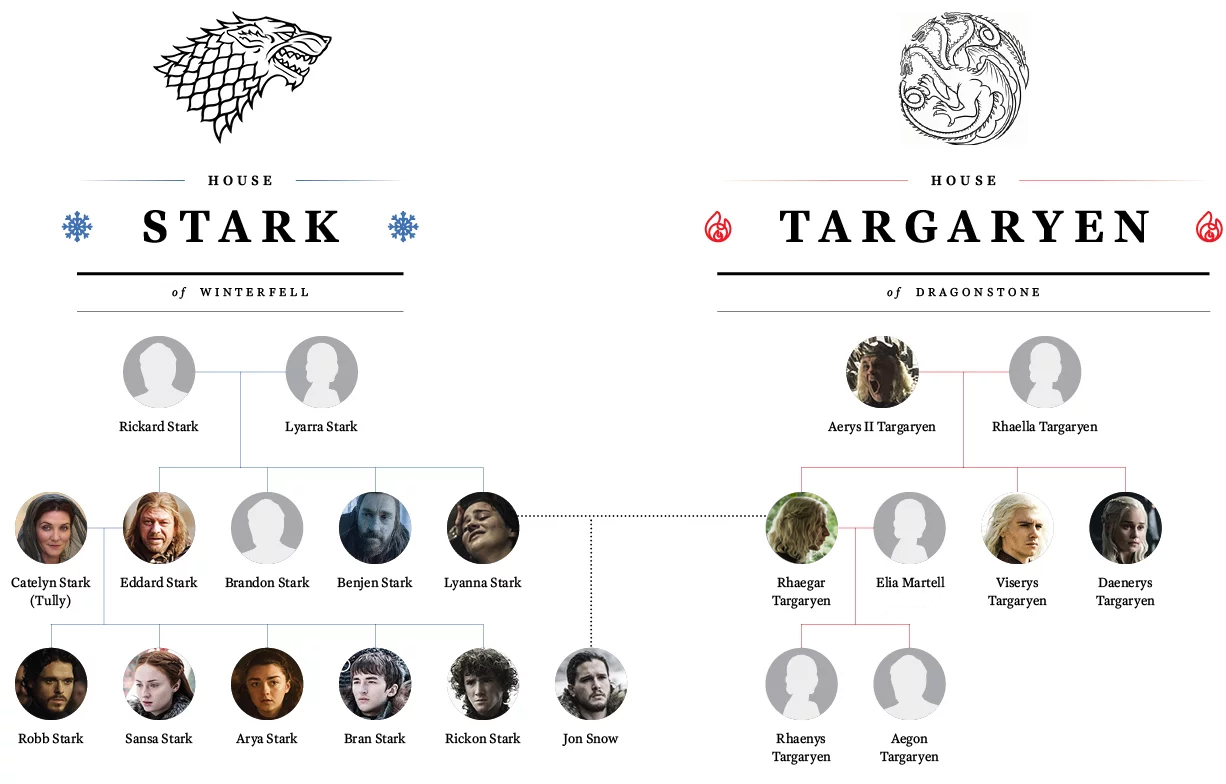
One popular theory holds that Tyrion is actually the Mad King’s bastard, which would make him another secret Targaryen. In the books, it’s rumored that the Mad King was overly fond of Joanna Lannister and may have raped her around the time that Tyrion was conceived. Joanna’s relationship with the Mad King is never mentioned in the show, but Tywin does make several comments to Tyrion that seem as though they could be hints to this effect.
“You are an ill-made, spiteful little creature, full of envy, lust, and low cunning,” Tywin tells Tyrion in season 3. “Men’s laws give you the right to bear my name and display my colors, since I cannot prove that you are not mine. And to teach me humility the gods have condemned me to watch you waddle about wearing that proud lion that was my father’s sigil and his father’s before him.”
Not to mention that Tywin’s last words to Tyrion are literally, “You’re no son of mine.”
There’s also the fact that Tyrion has long felt a connection to dragons and, in season 6, he even managed to get up close and personal with Viserion and Rhaegal without getting barbecued.
However, other fans believe the third head of the dragon will turn out to be Jon and Daenerys’ potential child. In the books, when Daenerys’ son Rhaego is stillborn after she enters the tent in which Mirri Maz Duur is performing a blood magic ritual on Khal Drogo, Mirri implies to Daenerys that she is now infertile.
“When the sun rises in the west and sets in the east,” Mirri tells her after she demands to know when the catatonic Drogo will be back to normal. “When the seas go dry and mountains blow in the wind like leaves. When your womb quickens again, and you bear a living child. Then he will return, and not before.”
Mirri delivered a similar prophecy in the show, but the line about Daenerys’ womb was left out. Cut to season 7 when Daenerys’ supposed infertility is mentioned on several occasions. One such reference comes during a conversation she has with Tyrion about succession in that season’s sixth episode, “Beyond the Wall.”
Tyrion: The world you want to build doesn’t get built all at once, probably not in a single lifetime. How do we ensure your vision endures? After you break the wheel, how do we make sure it stays broken?
Daenerys: You want to know who sits on the Iron Throne after I’m dead, is that it?
Tyrion: You say you can’t have children, but there are other ways of choosing a successor. The Night’s Watch has once method. The Ironborn, for all their many flaws, have another.
Daenerys: We will discuss the succession after I wear the crown.
Following Viserion’s death, Daenerys also reveals her infertility to Jon. “The dragons are my children,” she tells him. “They’re the only children I’ll ever have. Do you understand?”
Of course, judging by the nature of prophecies in the world of Thrones, Daenerys’ belief that she can no longer have children may be completely off base. And if Daenerys and Jon do produce an heir, he or she could very well turn out to be the person who unites the Seven Kingdoms.
More Must-Reads from TIME
- Caitlin Clark Is TIME's 2024 Athlete of the Year
- Where Trump 2.0 Will Differ From 1.0
- Is Intermittent Fasting Good or Bad for You?
- The 100 Must-Read Books of 2024
- Column: If Optimism Feels Ridiculous Now, Try Hope
- The Future of Climate Action Is Trade Policy
- FX’s Say Nothing Is the Must-Watch Political Thriller of 2024
- Merle Bombardieri Is Helping People Make the Baby Decision
Write to Megan McCluskey at megan.mccluskey@time.com